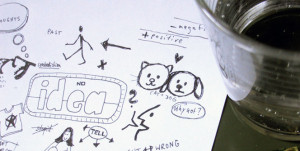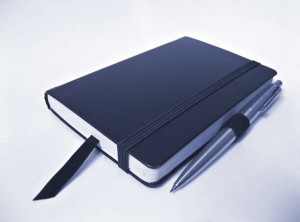In the spirit of the upcoming International Women’s Day, my publisher thought it would be a great idea to focus my next few blog posts on women, specifically women writers from South Asia. I was reluctant to do so. It sounded like a cliché, the obligatory post that every female writer feels compelled to do at some point in her career. “Hey, women of the world, look at me, I’m also a woman!’ I have often thought that making that distinction, women writers vs. male writers, is what puts us in second place. Which reminded me of Ainsley Hayes from The West Wing, who didn’t believe that her country needed an equal rights amendment for women:
BECAUSE IT’S HUMILIATING. A NEW AMENDMENT WE VOTE ON DECLARING THAT I AM EQUAL UNDER THE LAW TO A MAN…I AM MORTIFIED TO DISCOVER THERE’S REASON TO BELIEVE I WASN’T BEFORE. I AM A CITIZEN OF THIS COUNTRY, I AM NOT A SPECIAL SUBSET IN NEED OF YOUR PROTECTION. I DO NOT HAVE TO HAVE MY RIGHTS HANDED DOWN TO ME BY A BUNCH OF OLD, WHITE, MEN. THE SAME ARTICLE 14 THAT PROTECTS YOU, PROTECTS ME, AND I WENT TO LAW SCHOOL JUST TO MAKE SURE.
– Aaron Sorkin, The West Wing, S02, Ep 18
When I first heard this, I thought, she’s so right! Why do we make it a point to separate ourselves as an independent entity when all we want is the opportunity to be judged equally? After all, even in a country like mine, which has a reputation for being an oppressive society for us, women are well entrenched in positions of power and as leaders of industry.
For instance, we’ve had a female prime minister twice—something that the US has yet to do. Women have been a part of our political leadership for decades, from Fatima Jinnah (a political player as far back as 1965) to Benazir Bhutto to Hina Rabbani Khar. In the last government, the Speaker of the National Assembly was a woman and for many, many years, Pakistan’s ambassador to the US (a coveted position) was female. One of our most famous architects, and the one getting very high-profile projects, is Yasmeen Lari. The top and most respected names in the fashion industry include Sonya Battla and Sana Safinaz. Noorjehan Bilgrami is a founder and the first dean of Pakistan’s second-largest art school. Until recently, the chairperson of the largest multinational corporation in the country, Unilever Pakistan, was Musharraf Hai, a woman. The most vociferous and vocal human rights activist in the country is a woman. Razia Bhatti, founder of the prestigious Newsline magazine, was a recipient of the Courage in Journalism award. Ameena Sayyid runs one of the largest publishing houses in the country, the Oxford University Press and is a founding member of the Karachi Literature Festival. The first Pakistani author I had heard of, who published in English, was Kamila Shamsie. Our first national (and international) pop icon was Nazia Hassan and our most celebrated singer is Madam Noorjehan. The first Oscar Pakistan won was awarded to Shireen Obaid Chinoy, and within Pakistan, women like Sahira Kazmi laid the groundwork for female directors thirty years ago. And, you’ve probably all heard of Malala Yusufzai, who survived being shot at, but not Perween Rehman, a tireless activist against Karachi’s notorious land mafia who was murdered for her efforts.
I’ve forgotten more women who belong on this list than I can count. But that’s not all.
Pakistan’s air force boasts nineteen female pilots, one of whom has just graduated to becoming our first fighter pilot, and the ranks are rapidly filling up with more. By a large margin, women dominate admissions to (and graduations from) top colleges and universities. They generally have the better grades and work very hard.
I know that in many instances I have special privileges because of my gender. When I go to the bank to pay a bill, I’m moved to the head of the line because I’m a woman and they don’t expect me to stand in line (something I’m in no hurry to change). This goes for almost all public-dealing and bureaucratic organizations. We routinely have security checkpoints around the city and if the police see a woman in the car, they wave you on (stupid, I know, considering the recent discovery of female suicide bombers and the Lal Masjid incident.*).
I can’t escape the fact that, due to religious convictions and cultural traditions, women are disadvantaged, sidelined and oppressed. But women in Pakistan are breaking glass ceilings and barriers despite these obstacles. They have a significant, if largely unmentioned, presence in almost every field and every industry, except perhaps sports (though that omission is also rapidly being redressed).
So, why would we need an International Women’s Day?
If organizations like the Taliban didn’t exist, I would probably agree with Ainsley Hayes. And if women weren’t joining their ranks (unbelievable as that is, they are), I would have told my publisher that we didn’t need to be seen as ‘a special subset’ of writers, artists, businesswomen, politicians and leaders.
And we don’t. But we do need to shout our accomplishments from the rooftops. Not to tell men that we’re valuable members of society, but to tell women that we are. To inspire other women to reach for the stars. We should celebrate our achievements not because we want to be judged as a separate entity, but because other women, young girls who are dreamers, future leaders and thinkers, need to be aware that it is possible, that they have choices in life beyond marriage and children. And that we’re here to support you, whatever you decide to do.
——-
*For those who don’t know the story, Lal Masjid is a historically significant madressah created as a training ground for the mujahideen in the Afghan war. In 2007, the imam of the mosque and his students, both male and female, challenged the writ of the State by declaring war on immorality. They kidnapped a woman they suspected of running a brothel in Islamabad, vandalized music and video stores and barricaded themselves into their mosque, guarded by a phalanx of female students wielding sticks and batons. In a dramatic showdown with the government, the imam of the mosque tried to escape amongst a group of women, dressed in a burqa. They found a hefty cache of weapons when they finally cleared out the mosque.



 I know this question is often met with derision from literary panels, but I think it is a relevant question to ask a writer. Writers get ideas from the world around them, but so does everyone else.
I know this question is often met with derision from literary panels, but I think it is a relevant question to ask a writer. Writers get ideas from the world around them, but so does everyone else. I like the idea of a journal because I write it for me, meaning I am my Target Audience—this gives my imagination a lot of free rein.
I like the idea of a journal because I write it for me, meaning I am my Target Audience—this gives my imagination a lot of free rein.
 I once read a novel where a protagonist points out that the use of profanity is the sign of a stunted mind. Not only is the person swearing ill-mannered and boorish, but he (or she) obviously does not have the words in his vocabulary to effectively convey his real meaning. Hence the over-use of slang or offensive language to cover his deficiencies.
I once read a novel where a protagonist points out that the use of profanity is the sign of a stunted mind. Not only is the person swearing ill-mannered and boorish, but he (or she) obviously does not have the words in his vocabulary to effectively convey his real meaning. Hence the over-use of slang or offensive language to cover his deficiencies.